Search Results for: Octopus
Skip to resultsCan’t find what you’re looking for? Visit our FAQ page.
246 results for: Octopus
-
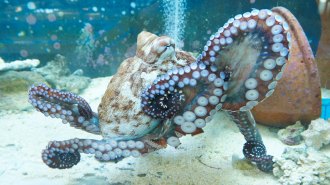 Animals
AnimalsScientists have now recorded brain waves from freely moving octopuses
The data reveal some unexpected patterns, though it’s too early to know how octopus brains control the animals’ behavior, a new study finds.
-

The animal kingdom never ceases to amaze
Editor in chief Nancy Shute revels in the wonder of animals, from psychedelic toads to extinct pterosaurs.
By Nancy Shute -
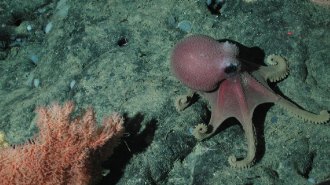 Science & Society
Science & SocietySea life offers a lens for self-exploration in ‘How Far the Light Reaches’
In a collection of essays profiling 10 marine animals, author Sabrina Imbler mixes in stories of their own family, self-discovery, sexuality and healing.
By Aina Abell -
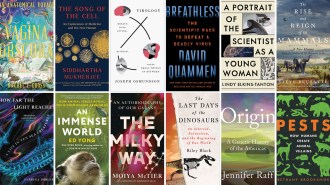 Science & Society
Science & SocietyThese are our favorite science books of 2022
Books about dinosaurs, the Milky Way and the coronavirus are among the Science News staff’s picks for must-read books of the year.
-
 Tech
TechThis octopus-inspired glove helps humans grip slippery objects
The human hand, for all its deftness, is not great at grasping slippery stuff. A new glove aims to change that.
-
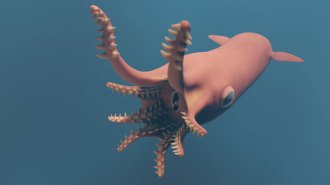 Paleontology
PaleontologyVampire squid are gentle blobs. But this ancestor was a fierce hunter
New fossil analyses of 164-million-year-old ancestors of today’s vampire squid show the ancient cephalopods had muscular bodies and powerful suckers.
-

-
 Animals
AnimalsHow do we know what emotions animals feel?
Animal welfare researchers are studying the feelings and subjective experiences of horses, octopuses and more.
-
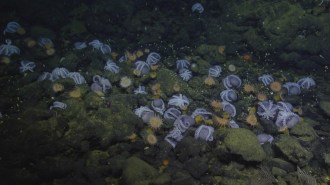 Oceans
OceansSome deep-sea octopuses aren’t the long-haul moms scientists thought they were
Off California’s coast, some octopuses lay eggs in the warmer water of geothermal springs in the “Octopus Garden,” speeding up their development.
-
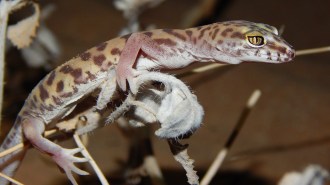 Animals
AnimalsHow a western banded gecko eats a scorpion
New high-speed video details how usually mild-mannered geckos shake and incapacitate their venomous prey.
-
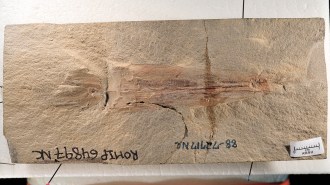 Paleontology
PaleontologyScientists are arguing over the identity of a fossilized 10-armed creature
An ancient cephalopod fossil may be the oldest ancestor of octopuses, but the interpretation hinges on the identification of one feature.
By Anna Gibbs -
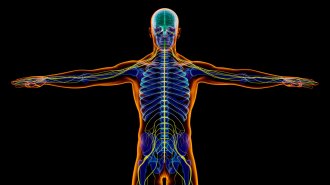 Neuroscience
Neuroscience‘Feeling & Knowing’ explores the origin and evolution of consciousness
In the book Feeling & Knowing, neuroscientist Antonio Damasio suggests that consciousness evolved as a way to keep essential bodily systems steady.
By JP O'Malley